Population and Social Characteristics
This Is How Evangelical Christianity Shaped America
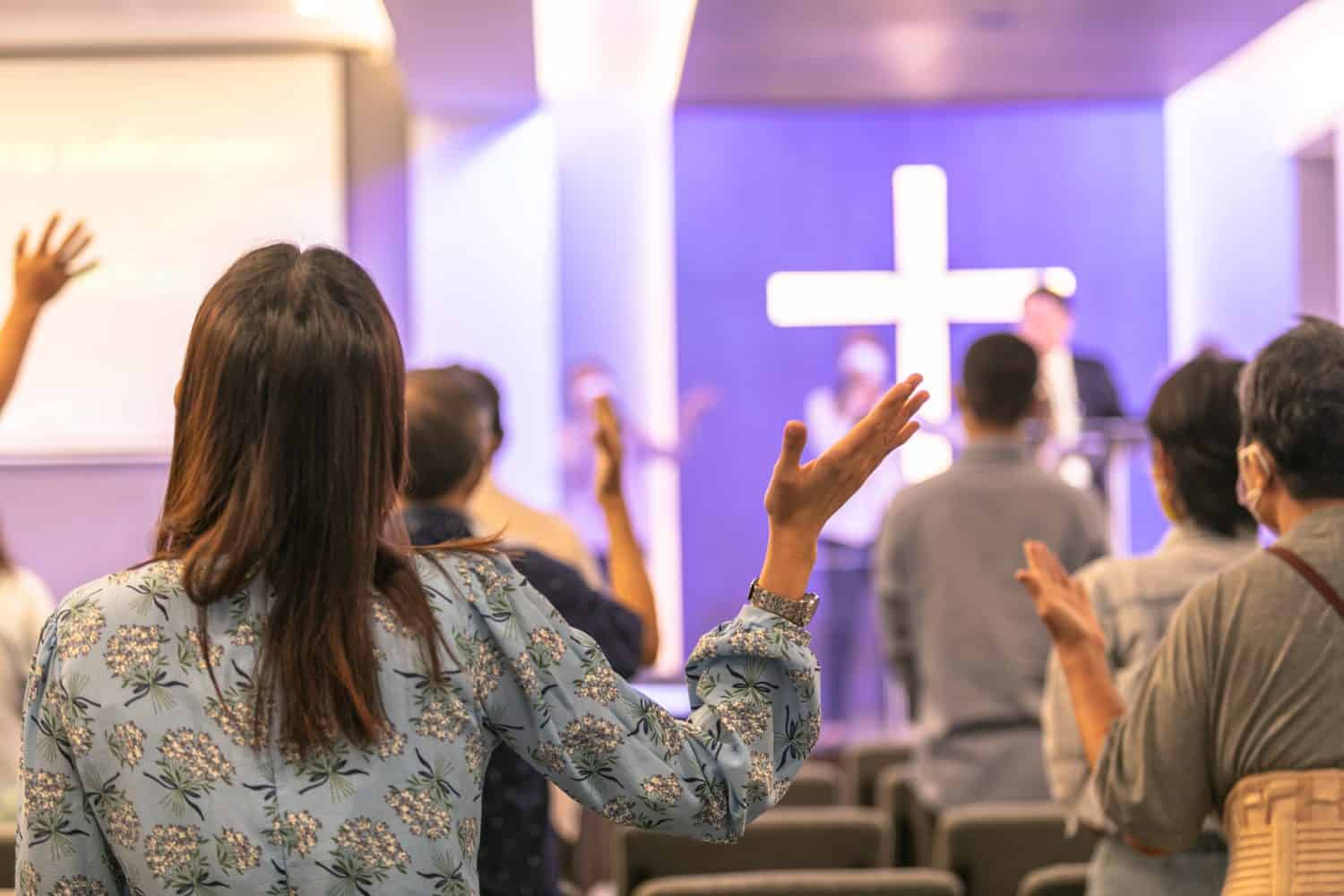
Published:

In a close election, a lot of media attention focuses on how different demographic groups might sway the results. Evangelical Christians make up one of the largest and most politically active segments of the U.S. population. Understanding who they are, what they believe, and how they have influenced American history can help make more sense of their political activism today.
24/7 Wall St. Insights
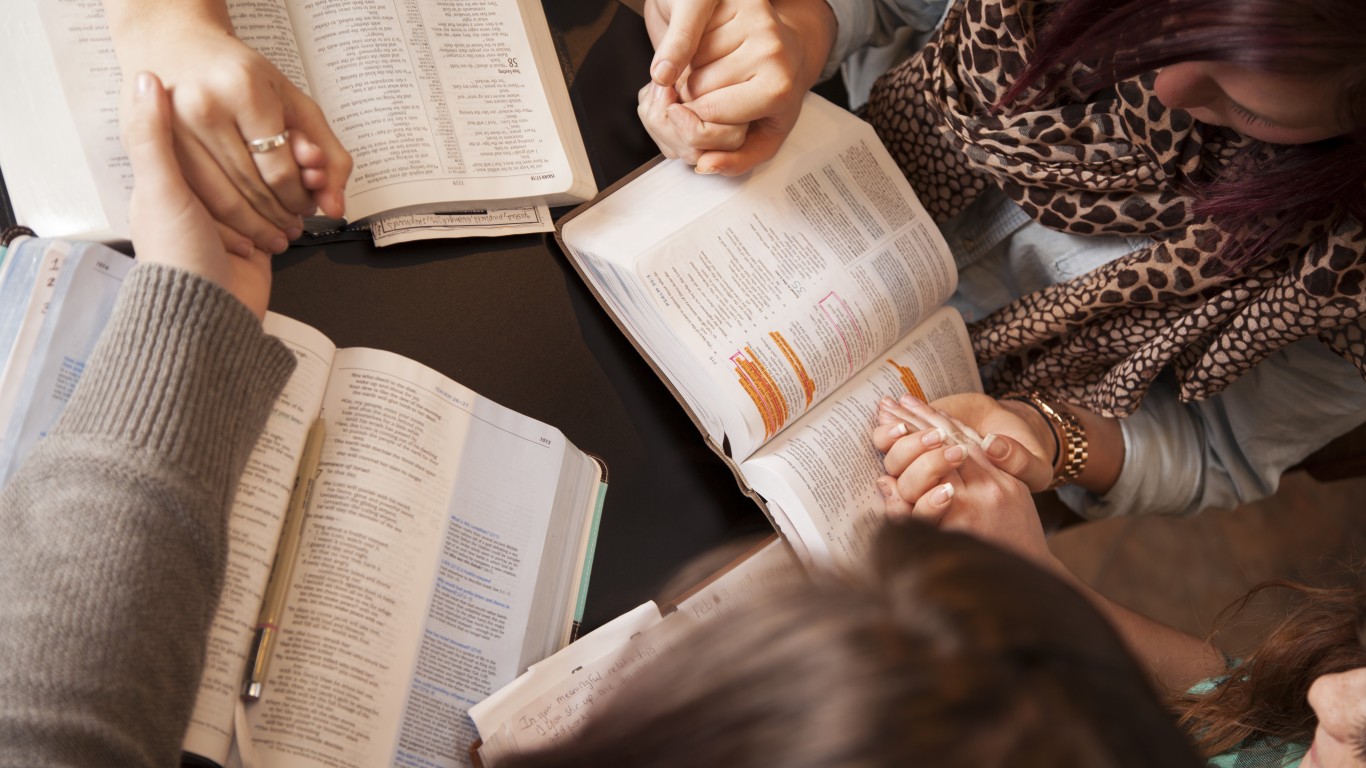
Evangelical Christians are Protestants who interpret the Bible conservatively. 40 million or more Americans are evangelical. Worldwide, they include as many as 25% of the world’s 2.5 billion Christians. Overseas, their numbers are especially strong in Latin America, Sub-Saharan Africa, the Philippines, China, and South Korea.
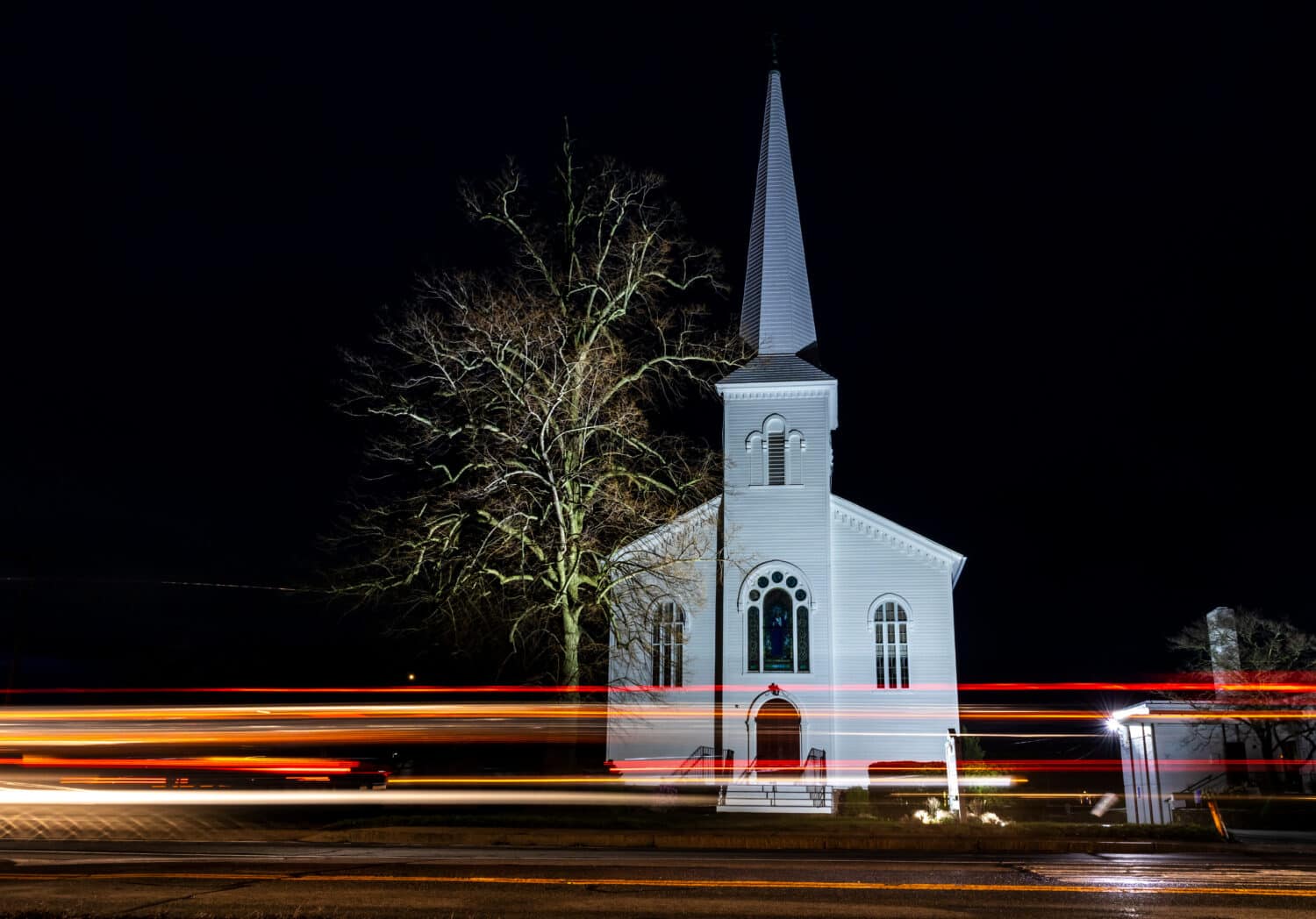
Some of the major evangelical denominations today include Baptists, Methodists, Pentecostals, Mennonites, Brethren, Nazarenes, and a large number of independent nondenominational churches. Some so-called “mainline” theologically progressive denominations like the Lutherans or Presbyterians have spawned evangelical splinter groups.
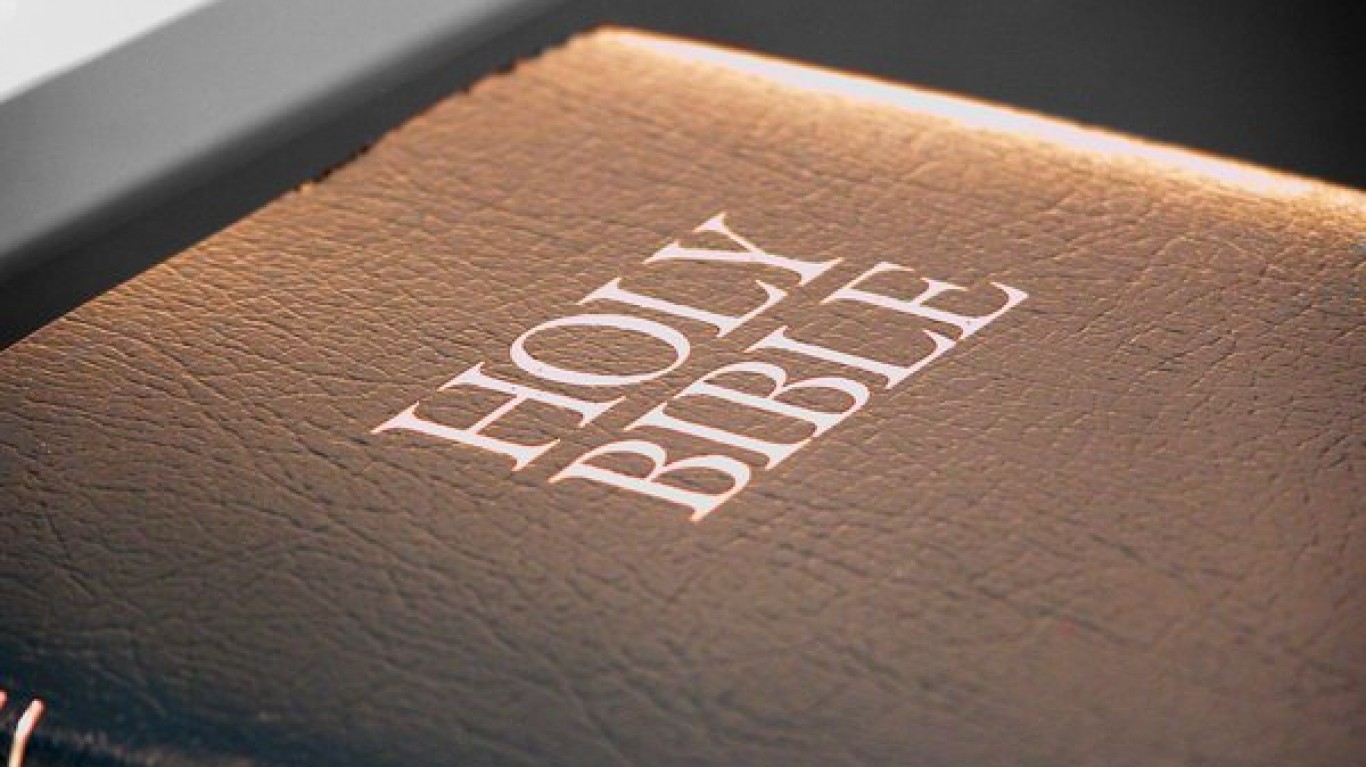
Although there are doctrinal nuances between these various groups, they share some common beliefs:
Although they didn’t necessarily identify themselves with the term “evangelical,” here are some ways people who held these beliefs have helped shape America,
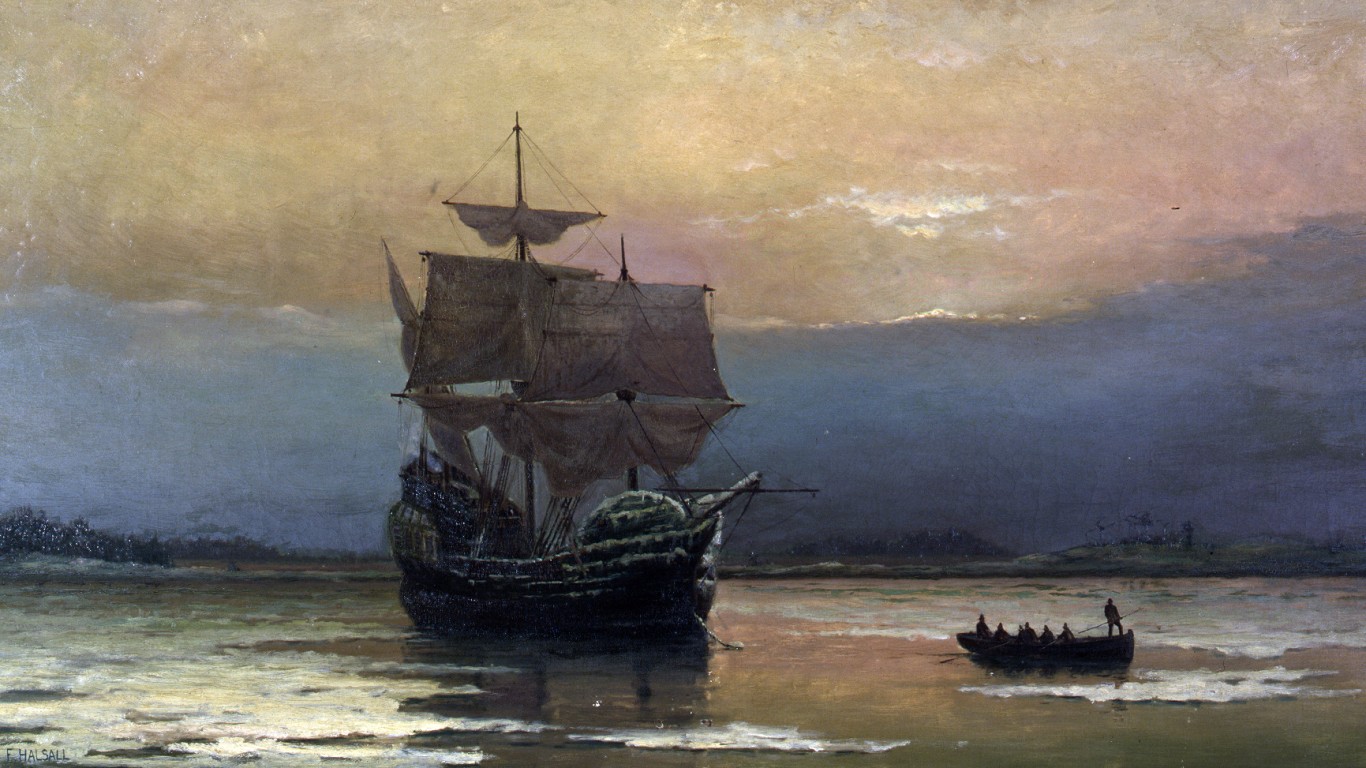
The New England colonies were founded by Puritans, or Pilgrims, who were conservative religious dissenters from the Church of England. Here are some noteworthy ways they influenced American culture:
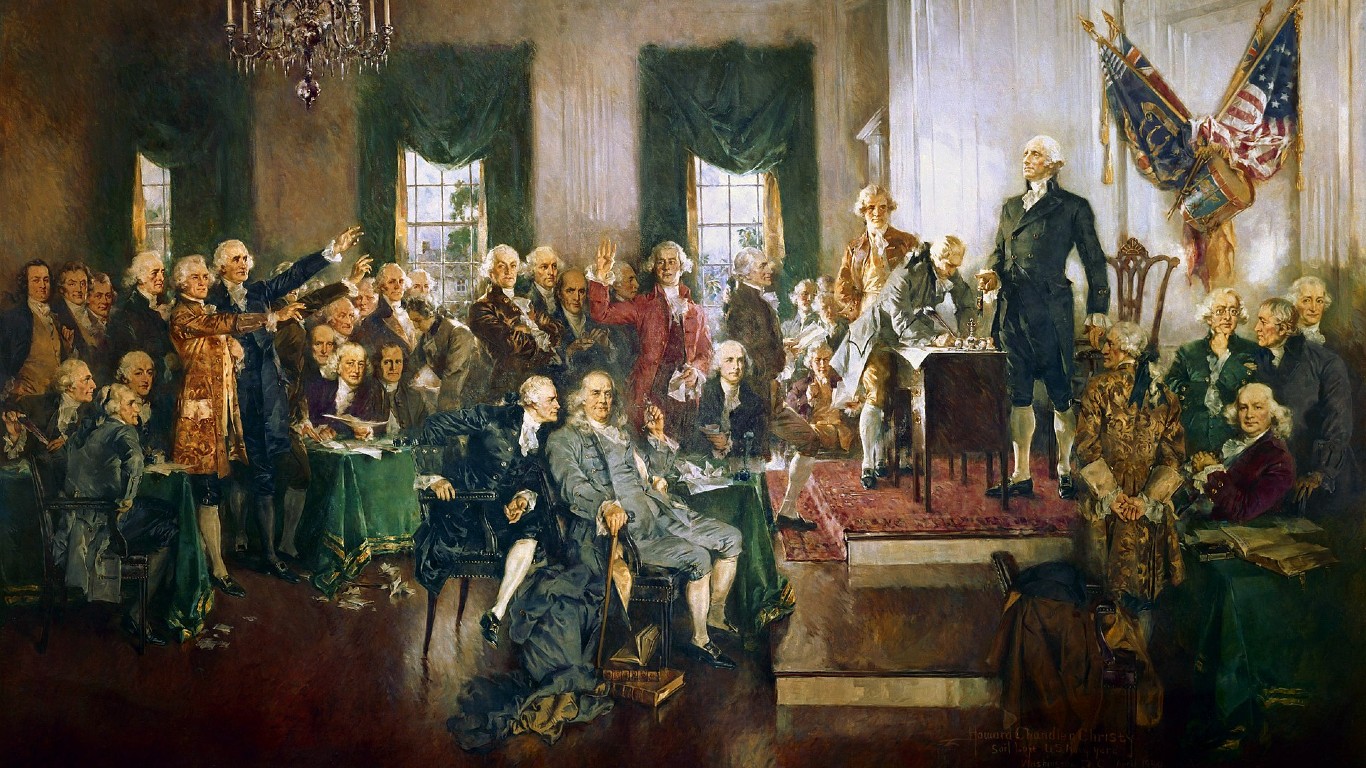
Many evangelicals make a point of claiming the founding fathers were motivated by Christian principles. This was only partially true. Legends like Washington, Jefferson, Franklin, Madison, and Monroe were products of a Christianized culture, but they were also worldly Enlightenment thinkers.
Fusing these intellectual streams into a belief system called deism, they believed Providence had created a world that ran according to logical principles and scientific laws, but did not interfere in it. Jefferson even took a pen knife to the Bible to excise any references to miraculous events, which in his worldview were not possible.
However, their views were undeniably Christian-influenced. For example, they held the belief that humans have a tendency toward evil (“original sin,” so to speak) that must be restrained. This contributed to their design of a government with checks and balances to prevent future power-hungry politicians from getting too far without hitting roadblocks.
The founders’ liberal intellectual approach to the Christian faith differed from the conservative mainstream of Christianity in the country, though. The First and Second Great Awakenings in the decades before and after the Revolution were huge nationwide religious revivals that brought waves of people into the church and helped form a sense of unified American national identity.

As the country was expanding westward, the first public building to be constructed in each new settlement was generally a combination church and schoolhouse. Christians promoted education because they wanted people to be able to read the Bible, their source of authority and guidance. The pastor was often the most educated person in town, serving not only as a Christian minister and teacher, but amateur physician, dentist, lawyer, and any other kind of learned professional needed.
One of the motivating philosophies of the country’s expansion in the mid- to late-1800s was “Manifest Destiny,” the idea that it was God’s will for America to expand and spread civilization from coast-to-coast. Many Christians justified the idea by comparing it to the conquest of Canaan by the Israelites in the Old Testament of the Bible, but casting America in the role of God’s “chosen people.” This is an illustration of evangelicals’ ability to “baptize” secular political objectives they agree with and conflate them with their biblical faith, even if it’s quite a stretch to do so.
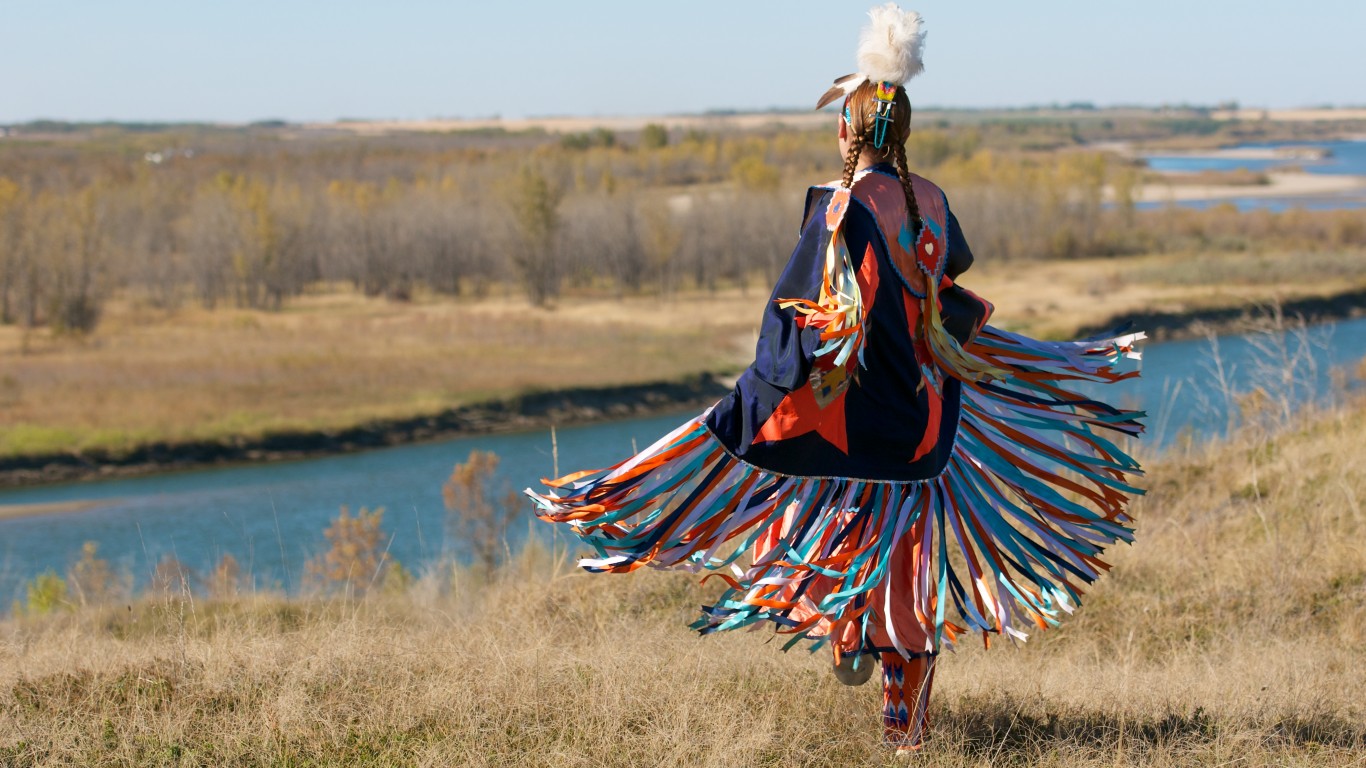
While the nation’s policies as a whole were abusive toward Native Americans and enslaved Africans, Christians were divided in their approach. Some advocated on the behalf of oppressed people in the government, wrote articles and books to educate the public, went as missionaries to them when conditions permitted, purchased the freedom of some slaves, and assisted others with escaping through the underground railroad.
In the culture of the time, though, Christian religious instruction was inseparable from beliefs in Anglo-American cultural superiority. Christians typically insisted that indigenous people speak, dress, and act like English people. When this proved ineffective, some denominations began taking children from their families into religious boarding schools where they were systematically stripped of their culture and often physically abused.
As for African slaves, the Abolitionist movement was strongest in New England and other northern states, with leaders like Harriet Beecher Stowe, Sojourner Truth, and Abraham Lincoln motivated to oppose slavery in large part because of their religious convictions. In the South, conservative church leaders used numerous passages in the Bible about slavery in the Roman Empire to justify its practice and to try to indoctrinate slaves with the idea that it was their moral duty to submit.
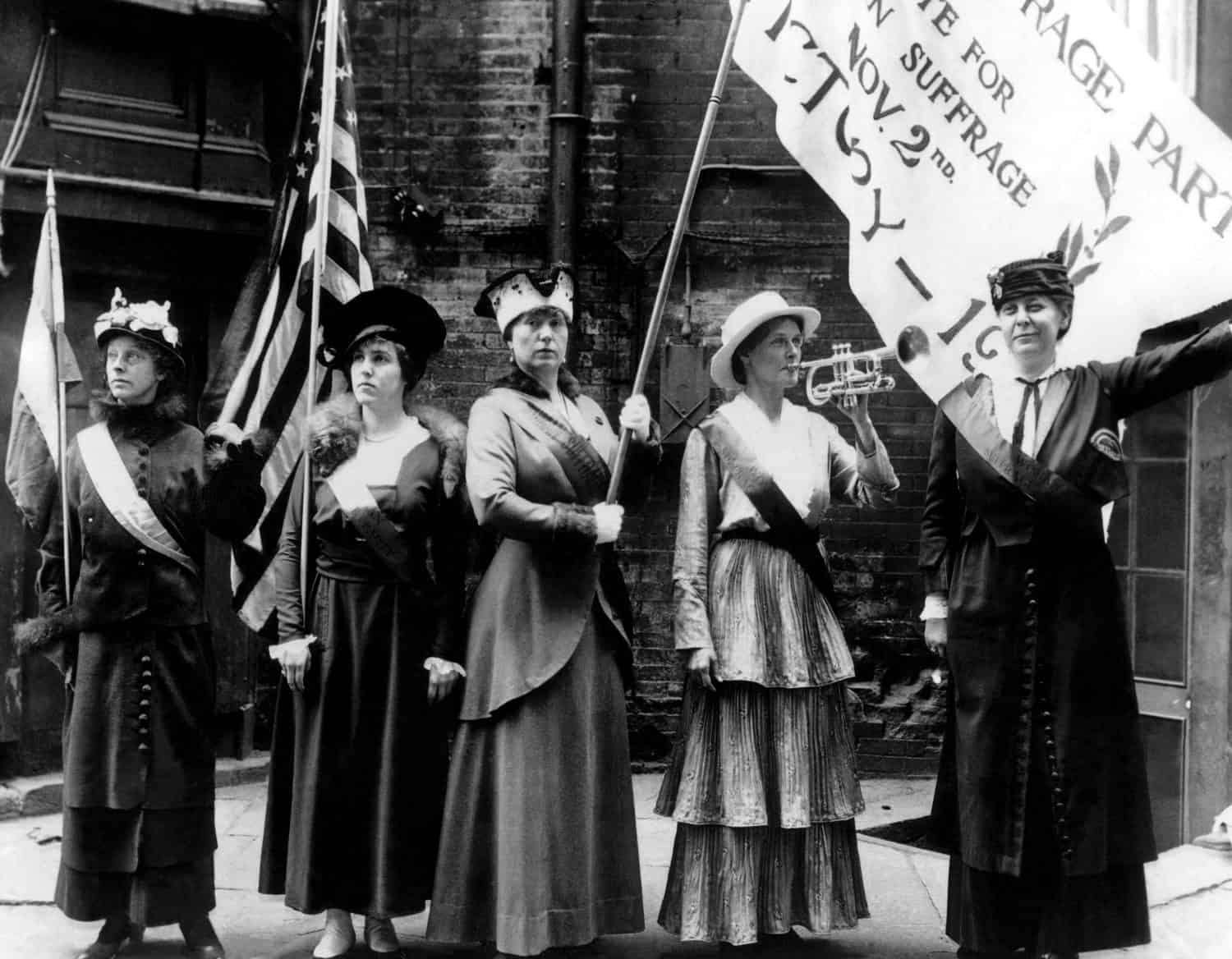
The abolishment of slavery at the end of the Civil War left northern reformers riding high and ready to take on more of the ills of society. The period of about 1890-1920 is called the Progressive Era. Key reforms of this era included labor rights, worker safety improvements, child labor laws, prohibition of alcohol, public health measures to control disease, consumer protection laws, antitrust laws to break up unfair monopolies, women’s suffrage and other rights, and the establishment of universal public education.
Christians were not the only or primary advocates for all of the reforms of that era, but the concept of constructing a society that cared for its poor and oppressed was something that resonated with the biblical Christian worldview. Some of our modern presidents on both sides of the political spectrum who have identified as Christian, including Carter, George W. Bush, Clinton, and Obama, had some reform policies that would be consistent with this stream of 19th and early 20th century evangelical Christian thinking.

The 19th and early 20th centuries were the heyday of global Christian missions, with preachers, teachers, Bible translators, and medical personnel fanning out around the world to evangelize as well as spread western culture and technology. Their newsletters and visits to churches back in the United States helped educate even people in remote areas about the wider world.
Later, toward the end of the 20th century, greater affluence and improved travel and communications facilitated hundreds of thousands of ordinary evangelicals going on short mission trips of 1-2 weeks to do humanitarian and spiritual service in other countries. Today, an estimated 1-2 million evangelical Christians go on these service projects each year, compared to 240,000 Americans serving in the Peace Corps over the entire 63-year history of that organization. Of course, the level of training, period of service, and impact of these two different experiences are quite different, so it’s not really fair to compare them. But it illustrates that one of the impacts of evangelicalism has been to get a massive number of ordinary Americans to go overseas and engage with problems of poverty and oppression more so than any other government program besides the U.S. military. This is no mean feat considering the country’s traditional tendencies toward isolationism.

The country as a whole was dragged onto the world stage in the 20th century in two World Wars and the smaller but equally intense Cold War conflicts in Korea and Vietnam. Although some evangelicals were conscientious objectors, the majority ardently embraced patriotism and anti-communism. World War I was when the American flag first started to be displayed in church auditoriums and some congregations began singing patriotic songs and even saying the Pledge of Allegiance to the flag as part of religious meetings. During the Cold War, the motto “In God We Trust” was first added to American currency as part of an effort to emphasize the difference between godly America and the atheistic Soviet Union—which Ronald Reagan would later famously call an “evil empire.”
An area where evangelicals have had a decisive influence in American foreign policy is in the Arab-Israeli conflict. Many evangelicals believed the establishment of an independent state of Israel in 1948 and its subsequent military victories over numerically superior Arab enemies were fulfillments of biblical prophecies. They believe that countries that assist Israel will be blessed by God and those that do not will be cursed. Ultimately, they expect a series of cataclysmic events in the Middle East culminating in the Battle of Armageddon. This war will initiate the return of Jesus Christ to judge the earth. The practical effect of these beliefs is to give Israel the unquestioning political support of tens of millions of Americans. This has complicated successive American administrations’ attempts broker peace in the Middle East in an evenhanded way that could win the trust of key Arab states.
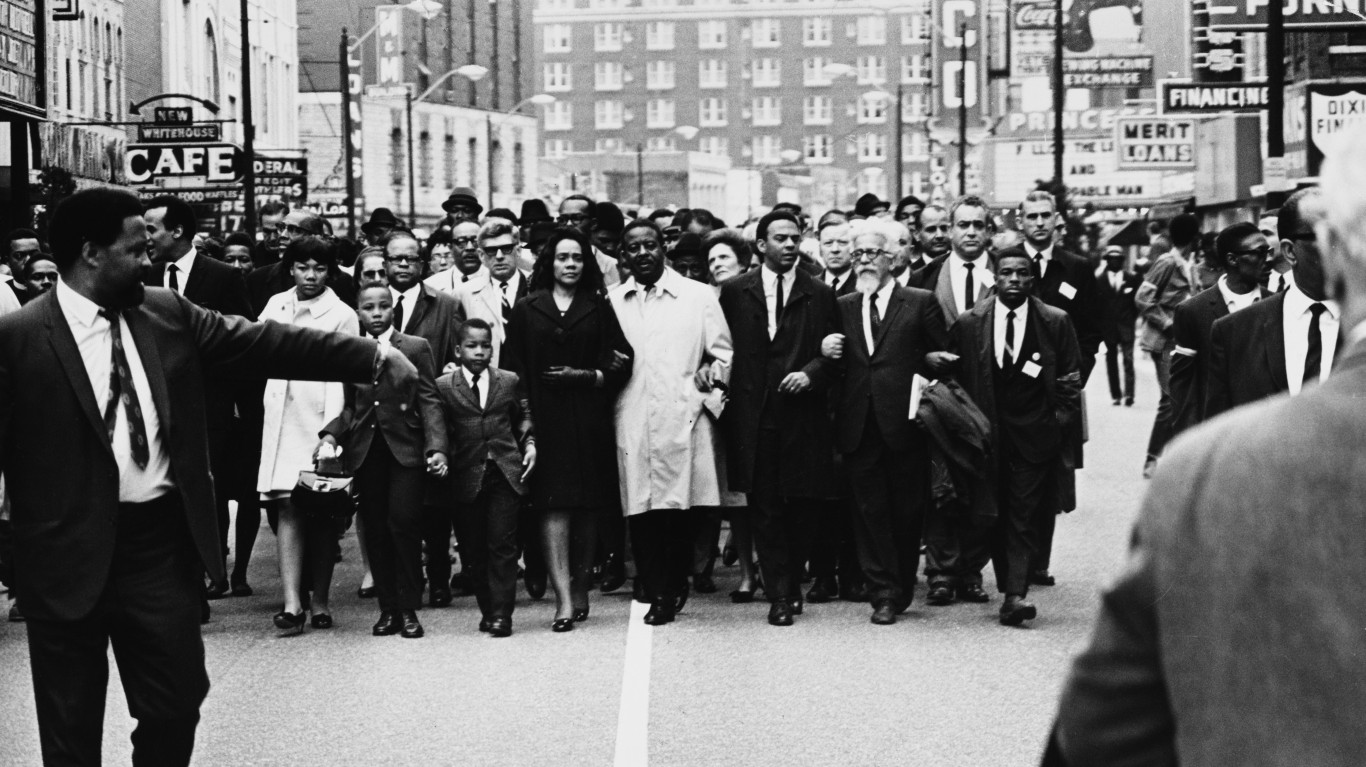
African slaves from different tribes speaking different languages were thrust together on American plantations and had little choice but to learn English and accept American institutions, including the Christian church. This became one of the few areas of life that gave them a sense of emotional catharsis from the oppression of their lives.
The Black church continued to be a central institution for African-American people and was especially significant during the Civil Rights movement of the 1960s. Dr. Martin Luther King, Jr., a Baptist pastor, used his oratory skills and Christian ethics to guide the movement along an effective path of nonviolent resistance. Dr. King was inspired by Mahatma Gandhi, the Indian champion of nonviolent resistance, who himself drew inspiration from stories of Jesus as well as his Hindu traditions.
The black church has had a profound impact on American culture particularly in the area of music. Black gospel music has influenced the development of other musical genres, including rhythm and blues, rock and roll, soul, jazz, and hip-hop.
African-American churches today largely adhere to conservative evangelical theological views but progressive social views, like the Progressive Era reformers. For this reason, in the media the term “evangelical” is becoming more of a political descriptor than a religious one, signifying Caucasian voters who are conservative not only theologically, but socially and politically as well.
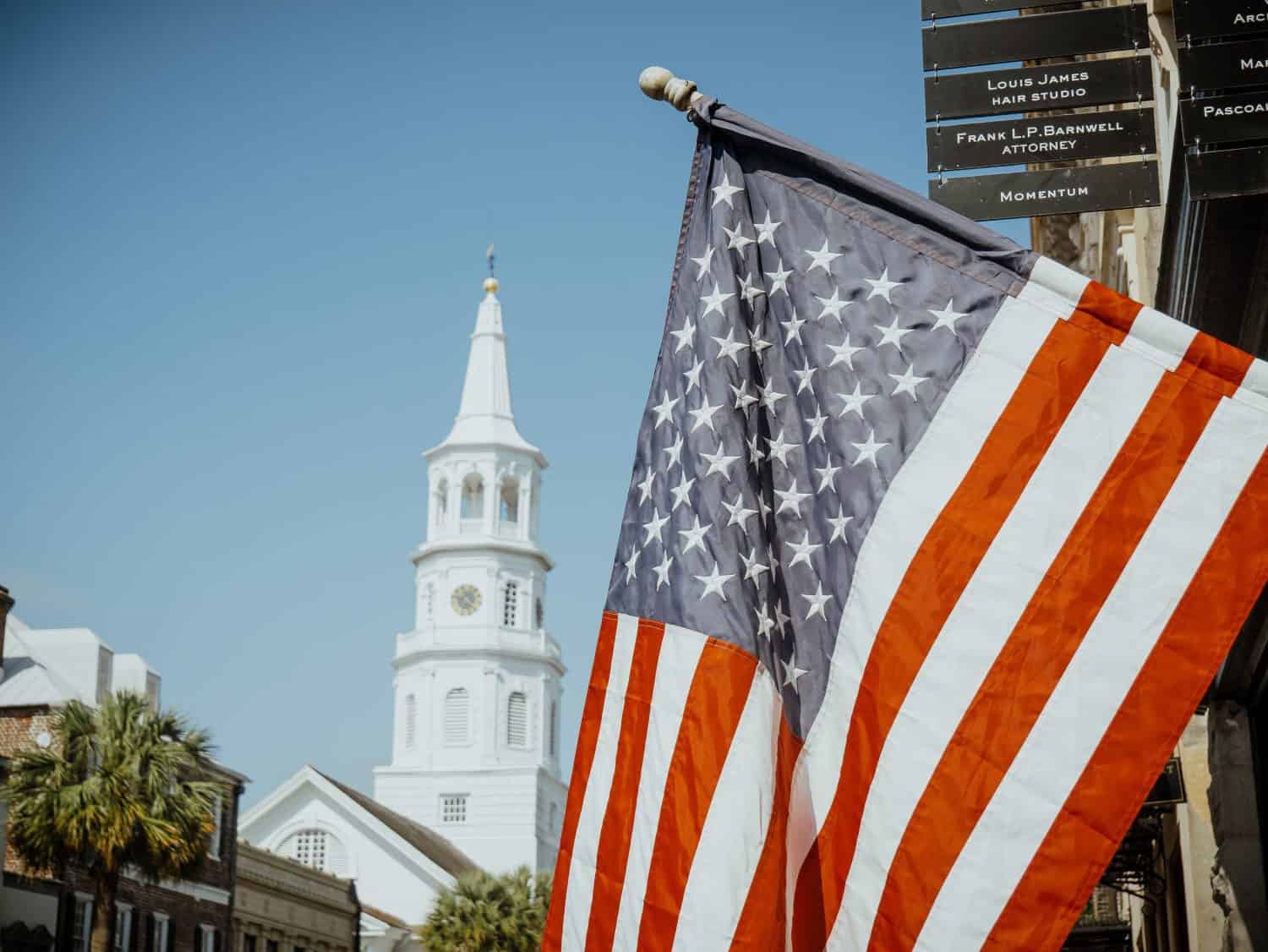
The election of Ronald Reagan in 1980 marked the noticeable influence of evangelical Christians on the political scene. Jerry Falwell, Pat Robertson, and James Dobson were three particularly outspoken evangelicals who became involved in political lobbying, and in Robertson’s case, even an unsuccessful run for president.
These are some of the main issues evangelicals have fought for in the public area that have come to be known as “culture war” issues:
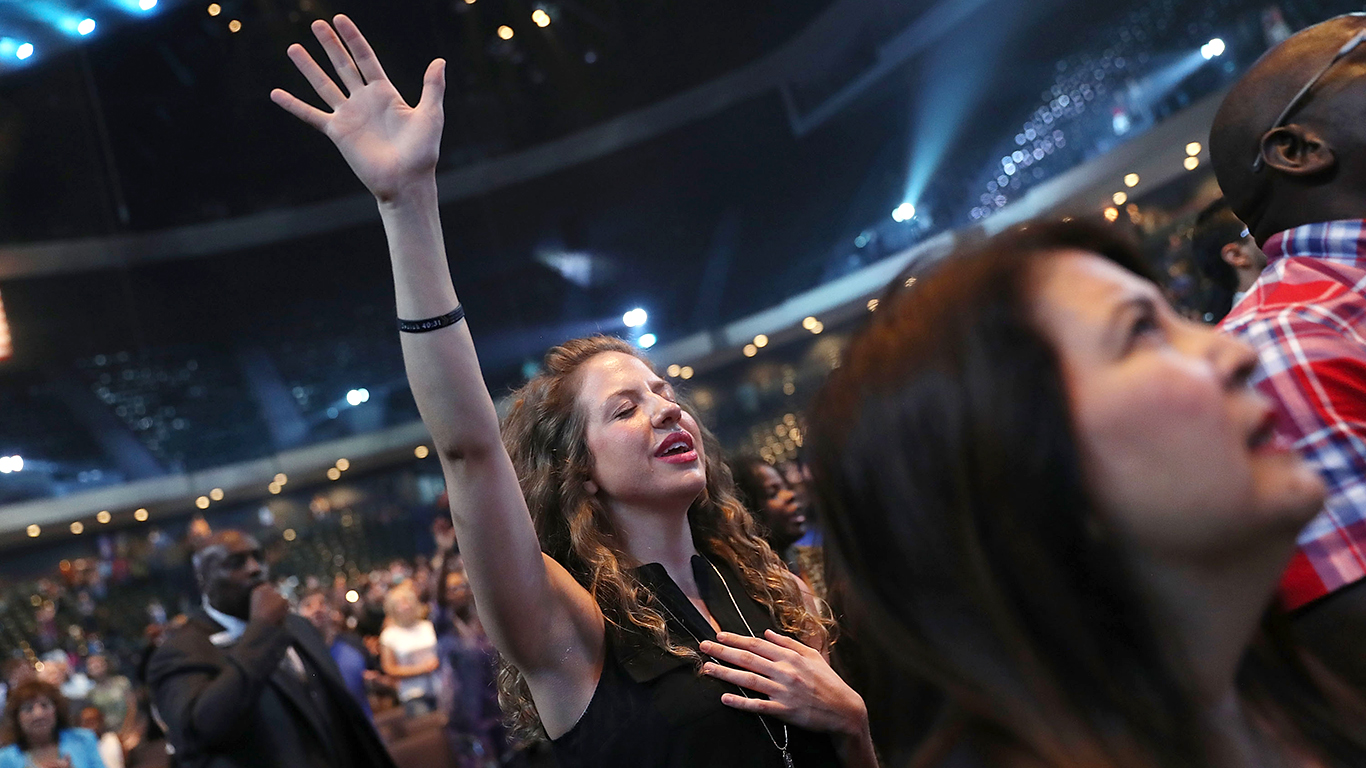
In recent decades, evangelicals have been declining as a percentage of the American population, along with Christians as a whole, while the percentage of people claiming no religious affiliation (“nones”) has climbed. This is particularly true among the younger generation. On the whole, Millennials and Gen Z trend more politically liberal. Many of them are disenchanted with the political positions evangelicals have taken in the past couple of decades, particularly related to acceptance of LGBTQ+ people in the churches and in society as well as environmental issues and respect for religious diversity. It remains to be seen whether large numbers of the younger generation of evangelicals will leave the Christian faith altogether, modify the positions of the existing evangelical institutions, or start new institutions. Most likely it will be a combination of all three.
A mitigating factor of evangelical decline, though, is the increase in the numbers of Latino and Asian-American immigrants, many of whom are evangelical Christian. Not all of them share the conservative political views of white evangelicals, however, so some will have more in common with African-American Christians.
Given the resilience of evangelical Christianity and its influence on the nation’s culture and history, it likely that it will not die out. Rather, through a combination of immigration and morphing to adjust to the priorities of a new generation of believers evangelicalism is likely to persist as a potent force in American culture and political life for the foreseeable future.
Are you ahead, or behind on retirement? For families with more than $500,000 saved for retirement, finding a financial advisor who puts your interest first can be the difference, and today it’s easier than ever. SmartAsset’s free tool matches you with up to three fiduciary financial advisors who serve your area in minutes. Each advisor has been carefully vetted and must act in your best interests. Start your search now.
If you’ve saved and built a substantial nest egg for you and your family, don’t delay; get started right here and help your retirement dreams become a retirement reality.
Thank you for reading! Have some feedback for us?
Contact the 24/7 Wall St. editorial team.